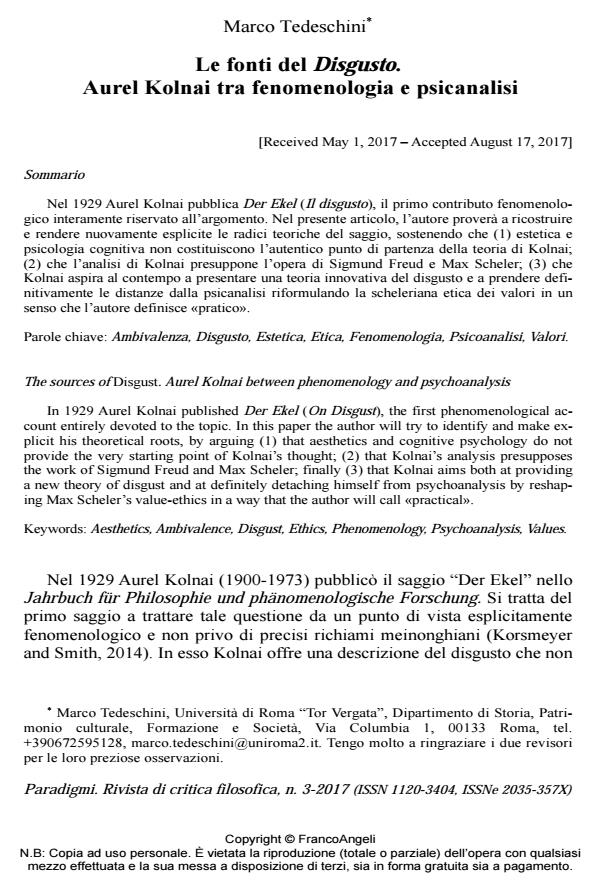Le fonti del Disgusto. Aurel Kolnai tra fenomenologia e psicanalisi
Titolo Rivista PARADIGMI
Autori/Curatori Marco Tedeschini
Anno di pubblicazione 2017 Fascicolo 2017/3
Lingua Italiano Numero pagine 16 P. 105-120 Dimensione file 195 KB
DOI 10.3280/PARA2017-003008
Il DOI è il codice a barre della proprietà intellettuale: per saperne di più
clicca qui
Qui sotto puoi vedere in anteprima la prima pagina di questo articolo.
Se questo articolo ti interessa, lo puoi acquistare (e scaricare in formato pdf) seguendo le facili indicazioni per acquistare il download credit. Acquista Download Credits per scaricare questo Articolo in formato PDF

FrancoAngeli è membro della Publishers International Linking Association, Inc (PILA), associazione indipendente e non profit per facilitare (attraverso i servizi tecnologici implementati da CrossRef.org) l’accesso degli studiosi ai contenuti digitali nelle pubblicazioni professionali e scientifiche.
Nel 1929 Aurel Kolnai pubblica Der Ekel (Il disgusto), il primo contributo fenomenologico interamente riservato all’argomento. Nel presente articolo, l’autore proverà a ricostruire e rendere nuovamente esplicite le radici teoriche del saggio, sostenendo che (1) estetica e psicologia cognitiva non costituiscono l’autentico punto di partenza della teoria di Kolnai; (2) che l’analisi di Kolnai presuppone l’opera di Sigmund Freud e Max Scheler; (3) che Kolnai aspira al contempo a presentare una teoria innovativa del disgusto e a prendere definitivamente le distanze dalla psicanalisi riformulando la scheleriana etica dei valori in un senso che l’autore definisce «pratico».
Parole chiave:Ambivalenza, Disgusto, Estetica, Etica, Fenomenologia, Psicoanalisi, Valori.
Marco Tedeschini, Le fonti del Disgusto. Aurel Kolnai tra fenomenologia e psicanalisi in "PARADIGMI" 3/2017, pp 105-120, DOI: 10.3280/PARA2017-003008